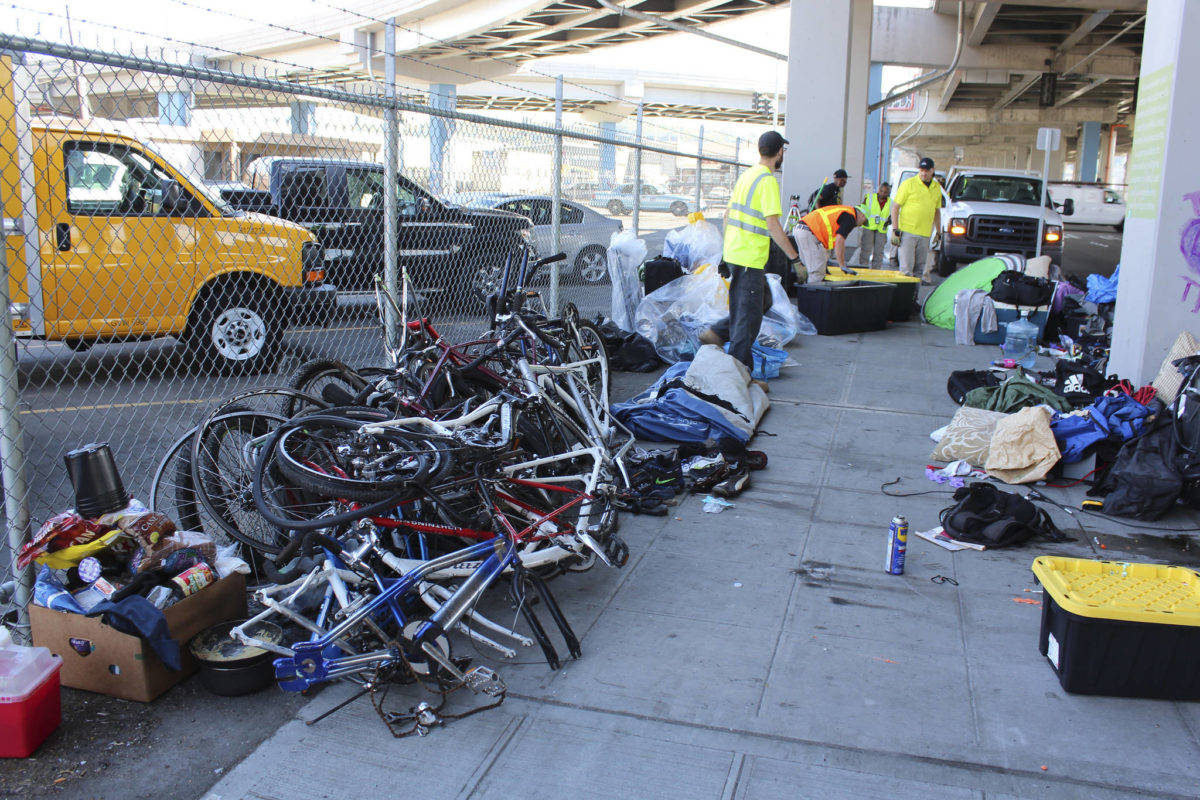A federal judge has ruled against homeless campers who are suing the City of Seattle for destroying their property during encampment evictions.
On Wednesday, Judge Ricardo S. Martinez denied the plaintiff’s motions for a preliminary injunction to stop the destruction.
As we reported, Martinez previously declined to grant a temporary restraining order, telling the plaintiffs to come back with more evidence. They are four homeless Seattleites—Lisa Hooper, Brandie Osborne, Kayla Willis and Reavy Washington—who had hoped the judge would treat them as representatives of the larger class of people who are dispossessed by sweeps, as well as Real Change, Trinity Parish of Seattle and the Episcopal Diocese of Olympia; in his ruling Wednesday, Martinez also denied the motion for class certification.
Martinez’s ruling offers a skeptical appraisal of the plaintiff’s complaints: “The Court agrees that Plaintiffs have not shown they are likely to succeed on the merits of their…challenges to the City’s Updated Encampment Rules.”
Considering the question of whether the City should have to store items that are wet, muddy, or in “less than perfect condition,” Martinez dwells at length on items splashed with “contaminated urine,” then concludes that since “diseases can in fact be transmitted by urine from infected persons (and animals)…the Court is not convinced that the City’s policy with respect to urine-contaminated items or wet items is ‘not grounded in fact.’”
More generally, Martinez found that as long as the plaintiffs cannot exhaustively document the vast majority of cases of unconstitutional harm being caused as police officers chase homeless people in circles around the city, the plaintiffs do not qualify for judicial recourse.
“The Court continues to recognize the hardships faced by Plaintiffs, and it acknowledges their constitutional property rights,” he wrote. “The optimum solution for the difficult issues raised in this lawsuit may, ultimately, only be found outside of a courtroom.”
It is not yet clear what the next step is for the case. The plaintiffs, represented by the state ACLU, can choose to appeal.
cjaywork@seattleweekly.com








